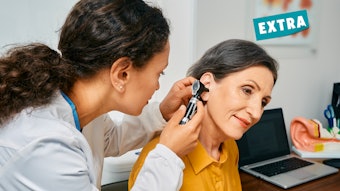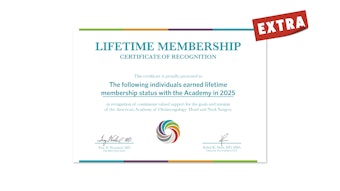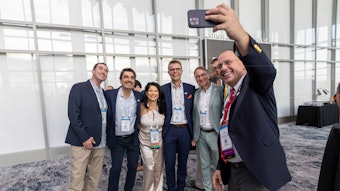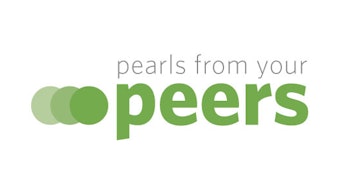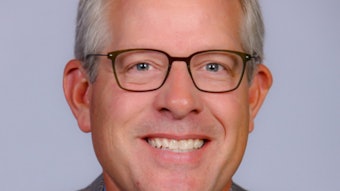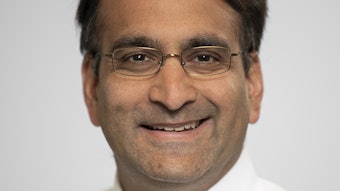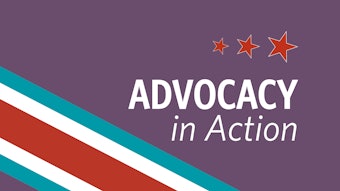Turning Up Our Voice in Washington
Politics may not be why you became a surgeon, but it shapes every aspect of your practice. Here's why we need to strengthen our voice in Washington and how every U.S.-based member plays a role.
Matthew D. Scarlett, MD, Chair of the AAO-HNS ENT Political Action Committee (PAC) Board, and Brad Gruehn, Senior Manager, Congressional & Political Advocacy
We often get asked, "Couldn't the AAO-HNS still advocate for otolaryngologists without ENT PAC?"
Technically, yes, but it would be like fighting a house fire with a garden hose. The Academy brings expertise and policy knowledge; ENT PAC brings political access. Both are essential to effective advocacy.
The Role of ENT PAC
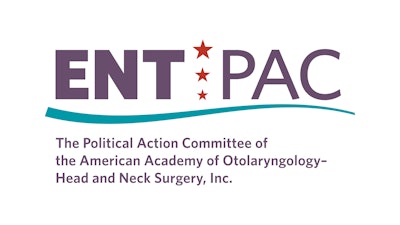
Access Equals Influence
ENT PAC gets us in front of the lawmakers who write healthcare policy. When more members contribute, we secure more of those critical meetings, and we have more chances to sit across the table from members of Congress and explain what otolaryngologist-head and neck surgeons actually need to deliver quality care.
ENT PAC contributions don't guarantee a legislator will vote our way. What they do is open doors and create opportunities to make our case and tell the patient stories that impact their constituents. Without those conversations, the answer is always no. With them, we have a fighting chance to protect the policies that matter to your practice, your patients, and the communities who elect their representatives to Congress.
The Reality We Face
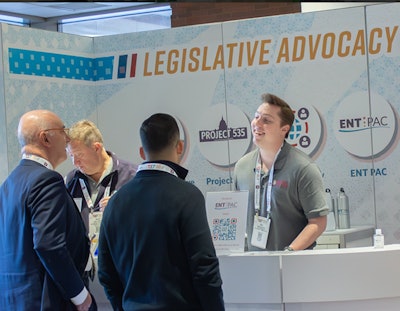 Members learn about ENT PAC's advocacy initiatives at the Legislative Advocacy booth during the 2025 AAO-HNSF Annual Meeting & OTO EXPO in Indianapolis.
Members learn about ENT PAC's advocacy initiatives at the Legislative Advocacy booth during the 2025 AAO-HNSF Annual Meeting & OTO EXPO in Indianapolis.
As Annette M. Pham, MD, Chair of the Otolaryngology Private Practice Section, explained in a Bulletin article earlier this year, “Advocacy is not an option; it’s an obligation. Fundamentally, advocacy is what physicians and surgeons already do when upholding the ethical and professional standards of practicing medicine. This is our implied agreement and understanding from taking the Hippocratic oath. We advocate for our patients, our community, our society, but we should also advocate for our practice and ourselves lest we no longer are able to practice medicine in the way we desire.”
Program cuts, value-based care models, and a dwindling Medicare Trust Fund are reshaping medicine—and specialties with strong advocacy are better positioned to weather these changes. In Washington, healthcare resources are finite. When decisions are made about Medicare physician payments or which procedures face heightened scrutiny, the specialties with a seat at the table have a voice in the outcome.
That's why our presence matters. Other specialties won't advocate for ENT surgeons. They're focused on their own challenges. We need to be there to speak for ourselves.
A Recent Example
When the U.S. Department of Health and Human Services (HHS) released its Make America Healthy Again (MAHA) report in May 2025, it singled out two otolaryngology-head and neck surgery procedures (adenotonsillectomy for children with sleep apnea and tympanostomy tubes) as providing "no benefit." These were the only surgical procedures called out in the entire report.
You might have expected the broader medical or surgical community to push back against the misleading references and mischaracterizations. In reality, no one outside the otolaryngology community spoke up. The Academy and the American Society of Pediatric Otolaryngology stood up, highlighting the evidence-based value of these procedures. (member login required to read)
That experience reinforced an important reality: We are our specialty's strongest advocates.
What We're Fighting For
At political events throughout the year, ENT PAC ensures U.S. lawmakers hear directly from us about:
- Fair Medicare physician payments
- Prior authorization reform
- Preserving physician-led hearing healthcare teams
- Preventing permanent hearing loss in infants
- Easing the student loan burden on medical residents
- Providing a pathway to train more medical students
Competition for lawmakers' attention is intense, and right now other specialties of comparable size are outpacing us in advocacy investment. The good news? We have the membership base to close that gap.
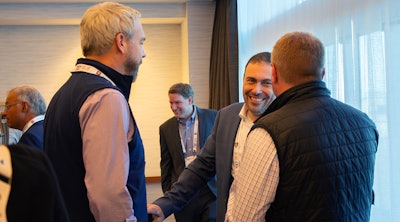 ENT PAC investors connect during a reception at the 2025 Annual Meeting.
ENT PAC investors connect during a reception at the 2025 Annual Meeting.
The Numbers Tell the Story
Within healthcare, seven groups raise over $1 million annually:
- American Academy of Dermatology
- American Association of Orthopaedic Surgeons
- American College of Emergency Physicians
- American Dental Association
- American Medical Association
- American Optometric Association
- American Society of Anesthesiologists
Another five groups raise between $500,000 and $1 million annually:
- American Academy of Ophthalmology
- American Association of Nurse Anesthesiology
- American College of Radiology
- American Osteopathic Association
- American Physical Therapy Association
Then there's everyone else—including ENT PAC. Here's how we compare with other surgical specialty PACs representing similar or smaller membership bases:

We actually have more members than these specialties—which means we have untapped potential. Higher participation would put us in a much stronger position to advocate effectively.
What Comes Next? Strong Advocacy Requires Collective Action
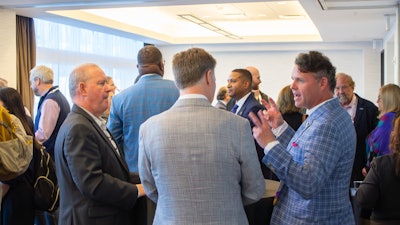 Attendees at the ENT PAC Investors Reception discuss the future of otolaryngology advocacy.
Attendees at the ENT PAC Investors Reception discuss the future of otolaryngology advocacy.
Every contribution strengthens our ability to open doors, make our case, tell our stories, and protect the specialty we've all dedicated our careers to. Together, we have the numbers to ensure ENT surgeons have a powerful voice in Washington. Your participation makes that possible.
Click here to invest in ENT PAC.
*Contributions to ENT PAC are not deductible as charitable contributions for federal income tax purposes. Contributions are voluntary, and all members of the American Academy of Otolaryngology-Head and Neck Surgery have the right to refuse to contribute without reprisal. Federal law prohibits ENT PAC from accepting contributions from foreign nationals. By law, if your contributions are made using a personal check or credit card, ENT PAC may use your contribution only to support candidates in federal elections. All corporate contributions to ENT PAC will be used for educational and administrative fees of ENT PAC, and other activities permissible under federal law. Federal law requires ENT PAC to use its best efforts to collect and report the name, mailing address, occupation, and the name of the employer of individuals whose contributions exceed $200 in a calendar year.

